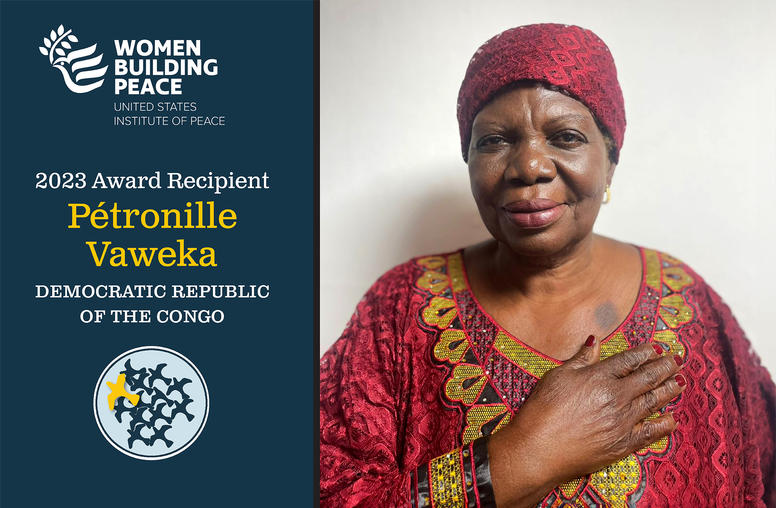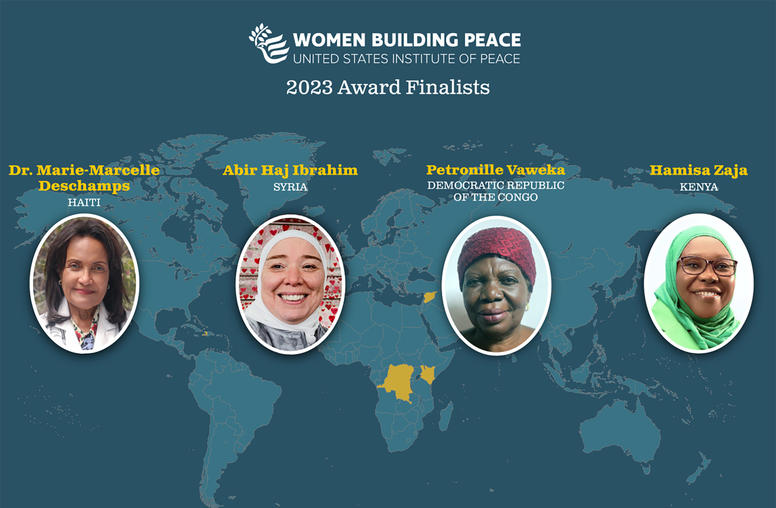Macedonia's Future: No Sure Thing
Institute Newsbyte.
In accordance with a framework peace agreement reached at Ohrid, Macedonia on August 13th with EU and U.S. assistance, the Macedonian parliament has adopted constitutional amendments designed to end the government's conflict with ethnic Albanian guerillas. Implementation is not, however, a sure thing. There are lingering threats to sustainable peace that could not only destabilize Macedonia but also the entire Balkans region.
On Thursday, November 15, 2001--just before the passage of the constitutional amendments--the U.S. Institute of Peace organized a Balkans Working Group meeting to examine obstacles to implementing the Ohrid Agreement and to discuss the consequences of failing to do so. While the discussion was off-the-record (not for attribution), this Newsbyte summarizes the main points.
Macedonia Still Matters
Although the war against terrorism currently demands priority U.S. attention, the potential for renewed violence if the Macedonian peace process fails should concern the United States and its European allies. Macedonia's continued instability would portend the same for the surrounding critical and volatile region by:
- Attracting global terrorist networks and encouraging organized crime;
- Triggering border modifications throughout the Balkans;
- Creating a "poor person's" Europe in the south Balkans; and
- Threatening relationships among NATO allies and between NATO and potential future members.
Looking at Macedonia Through Ethnic Lenses
Macedonians view the ethnic Albanian insurgency as terrorist in nature, originating in Kosovo. They complain that the international community failed to take the necessary measures to prevent the Kosovo Liberation Army from attacking the Macedonian state. They remind human rights critics of international praise during the last decade for Macedonia's handling of its ethnic minorities and express disbelief that legitimate human rights grievances generated the current violence. This perspective has generated bitterness among Macedonians toward both ethnic Albanians and the West.
Macedonian Albanians view the rosy picture painted in the past of interethnic relations in Macedonia as a chimera, generated by the international community's hope that Macedonia would escape the ethnic conflicts that engulfed other Yugoslav successor states. They believe problems addressed in the Ohrid agreement have existed since Macedonian independence and that the insurgency is mostly homegrown. Albanians appreciate the international community's efforts to resolve what they regard as obvious but long-ignored inequalities and human rights abuses by the ethnic Macedonian majority. This perspective has generated bitterness toward the Macedonians and appreciation of international support, especially from the United States.
Threats to the Peace Process
The immediate threats to the peace process arise from the following:
- Ethnic Albanian extremists who in an effort to undermine mainstream Albanian politicians exploit delays in ratifying constitutional amendments;
- Ethnic Macedonian nationalists in government who believe a military solution is possible;
- Antagonism in the ethnic Macedonian population toward the international community;
- The volatile press in Skopje, which lacks moderate voices; and
- Some ethnic Albanian and Macedonian politicians who propose partition as a possible solution.
Participants viewed with alarm the partition prospect because many communities--including Skopje--are ethnically mixed (so there is no good line to be drawn). Also redrawing borders could lead to partitions in Kosovo, Bosnia and elsewhere.
Broader factors reducing the likelihood of effective peace implementation include:
- Criminality and corruption that pervade the Albanian and Macedonian communities as well as the national government;
- Underdeveloped political parties and immature political leadership;
- Miserable economic conditions;
- Hostile neighbors and irredentism among their respective populations;
- Uncertainty concerning Kosovo's final status;
- The heavy hand of both the Albanian and Macedonian diasporas, which contribute money to extremist causes; and
- An international community that is overly anxious to claim success and declare victory.
Disparaging personal critiques of international envoys mediating the conflict and of domestic politicians also complicate the implementation process. Demonizing one's opponent makes eventual compromise more difficult.
The Future
Participants identified three possible scenarios for Macedonia's future:
- The Ohrid agreement is implemented, donors fund reforms and amnesty for guerillas is granted. Although the best solution, it is the least realistic at the moment.
- Although the amendments are ratified, implementation remains incomplete (e.g., no amnesty, limited donor support), leading to political squabbling and a leadership vacuum.
- The worst case--though the amendments have passed, the leadership vacuum still leads to the outbreak of civil war and partition not only of Macedonia but also of Kosovo and Bosnia.
On the brighter side, participants pointed to the desire of a majority of citizens of Macedonia, both Albanian and Macedonian, to avoid war and to seek a peaceful solution. Only a small minority wants to return to open warfare. They also noted that in order to avoid the worst case scenario continued international community commitment, including the United States, is crucial. Support of anti-corruption and anti-crime efforts, decentralization of governance, and cultivation of the next generation of political and civil society leaders are critical to the stable future of Macedonia.
The United States Institute of Peace is mandated by Congress to strengthen the nation's capabilities to promote the peaceful resolution of international conflict.
The views summarized here reflect the discussion at the meeting; they do not represent formal positions taken by the Institute, which does not advocate specific policies.

